Panel 1
Thought experiments towards Future G networks, issues and opportunities
 Ana Aguiar is Assistant Professor at the University of Porto (UPorto) and senior researcher at Instituto de Telecomunicações (IT), where she coordinates the Network and Information Processing Group at IT Porto. She obtained her PhD from TU Berlin and her Licenciatura from UPorto. Her research focuses on wireless and mobile systems, concretely connectivity for mobile nodes, performance of wireless and mobile networks, and data science for sustainable mobility. She is adjunct coordinator of the Center of Competences for Future Cities at UP, where she operated the UrbanSense environmental sensors and the crowdsensing tool SenseMyCity, part of the Porto.LivingLab platforms. She led the VOCE project on voice stress detection, and participated in more than 15 projects, in 9 of them as co-PI or WP leader. She published more than 70 journal and conference articles, is reviewer for several IEEE transactions journals, and an expert with the EC. In the past, she was the CTO of CooDriver GmbH, and a senior researcher at Frauhofer Portugal AICOS.
Ana Aguiar is Assistant Professor at the University of Porto (UPorto) and senior researcher at Instituto de Telecomunicações (IT), where she coordinates the Network and Information Processing Group at IT Porto. She obtained her PhD from TU Berlin and her Licenciatura from UPorto. Her research focuses on wireless and mobile systems, concretely connectivity for mobile nodes, performance of wireless and mobile networks, and data science for sustainable mobility. She is adjunct coordinator of the Center of Competences for Future Cities at UP, where she operated the UrbanSense environmental sensors and the crowdsensing tool SenseMyCity, part of the Porto.LivingLab platforms. She led the VOCE project on voice stress detection, and participated in more than 15 projects, in 9 of them as co-PI or WP leader. She published more than 70 journal and conference articles, is reviewer for several IEEE transactions journals, and an expert with the EC. In the past, she was the CTO of CooDriver GmbH, and a senior researcher at Frauhofer Portugal AICOS.
Panelists
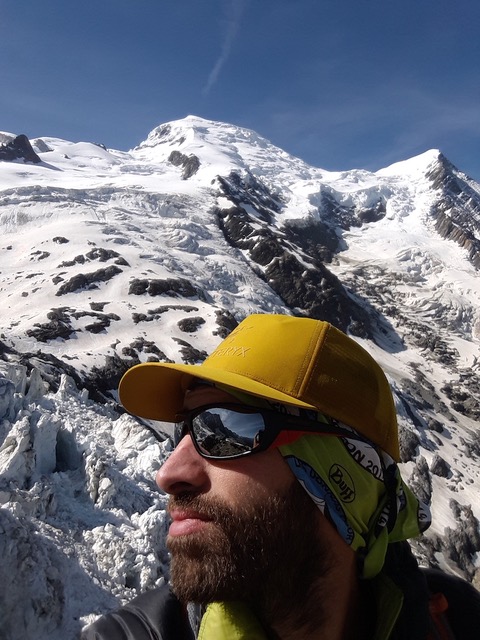 Before being researcher at Inria Sophia Antoplis since 2011, Damien Saucez was PhD student at UCLouvain, working in interdomain traffic engineering with LISP. At Inria, Damien is specialised in the applications of the Software Defined Networking (SDN) paradigm to realised robust, resilient, and provable large-scale complex networks. From 2019 to 2020, he moved to the industry, were he applied this methodology to aircraft cabin-networks at Safran Electrical and Power in Toulouse, France. Back to Inria in late 2020, he specialised in the application of the concept – in conjunction with cloud-native – to large 5G and beyond research infrastructures. All his research is driven by reproducibility and he is actively involved to make the community research work reproducible. Among others he lead the ACM SIGCOMM 2017 Reproducibility Workshop and by co-chaired several Artifact Evaluation Committees, the later in date being the ACM SIGCOMM 2023 AEC. In parallel to his research activities, Damien is a professional mountain leader.
Before being researcher at Inria Sophia Antoplis since 2011, Damien Saucez was PhD student at UCLouvain, working in interdomain traffic engineering with LISP. At Inria, Damien is specialised in the applications of the Software Defined Networking (SDN) paradigm to realised robust, resilient, and provable large-scale complex networks. From 2019 to 2020, he moved to the industry, were he applied this methodology to aircraft cabin-networks at Safran Electrical and Power in Toulouse, France. Back to Inria in late 2020, he specialised in the application of the concept – in conjunction with cloud-native – to large 5G and beyond research infrastructures. All his research is driven by reproducibility and he is actively involved to make the community research work reproducible. Among others he lead the ACM SIGCOMM 2017 Reproducibility Workshop and by co-chaired several Artifact Evaluation Committees, the later in date being the ACM SIGCOMM 2023 AEC. In parallel to his research activities, Damien is a professional mountain leader.
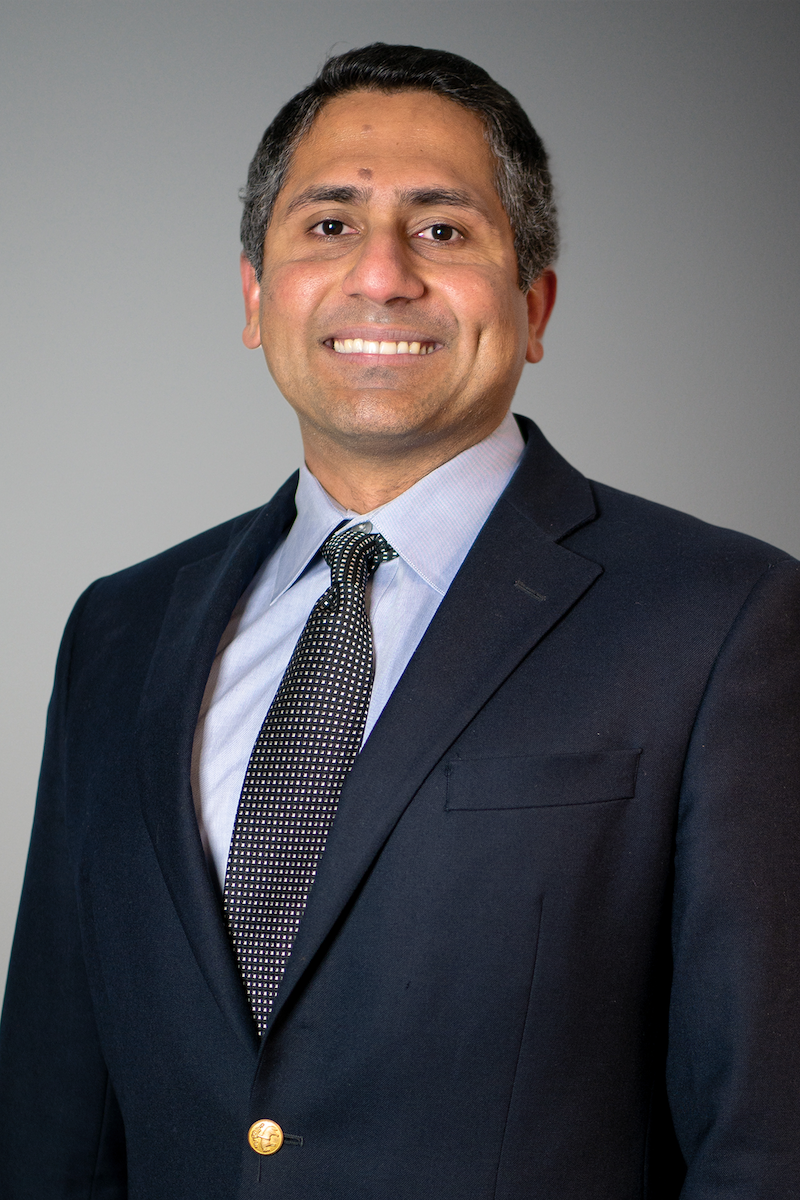 Abhimanyu (Manu) Gosain is a Senior Director for Institute of Wireless Internet of Things at Northeastern University, co-Chair for the FCC 6G Technology Advisory Council and Senior Advisor for NTIA ITS and DoD OUSD R&E FutureG. He is in charge of setting strategic goals and the research agenda for a $100M public-private partnership for the NSF Platforms for Advanced Wireless Research (PAWR) program and $25M DARPA Colosseum program. He serves as a Board Member for the OpenAirInterface Software Alliance, Founding member for Magma Core Foundation, Academic research council representative for O-RAN Alliance, Technology Roadmap group member for NextG Alliance and co-chair on organizing committee and program committees for 6GSymposium, EuCNC,IEEE InfoCom and ACM WinTech. His numerous professional publications and experience exemplify use-inspired basic research in the field of networking technologies such as 5G,6G, AI/ML, edge computing and Internet of Things. He is an IEEE Senior Member. He received his M.S. degree from Tufts University and M.B.A. from Boston University with High Honors
Abhimanyu (Manu) Gosain is a Senior Director for Institute of Wireless Internet of Things at Northeastern University, co-Chair for the FCC 6G Technology Advisory Council and Senior Advisor for NTIA ITS and DoD OUSD R&E FutureG. He is in charge of setting strategic goals and the research agenda for a $100M public-private partnership for the NSF Platforms for Advanced Wireless Research (PAWR) program and $25M DARPA Colosseum program. He serves as a Board Member for the OpenAirInterface Software Alliance, Founding member for Magma Core Foundation, Academic research council representative for O-RAN Alliance, Technology Roadmap group member for NextG Alliance and co-chair on organizing committee and program committees for 6GSymposium, EuCNC,IEEE InfoCom and ACM WinTech. His numerous professional publications and experience exemplify use-inspired basic research in the field of networking technologies such as 5G,6G, AI/ML, edge computing and Internet of Things. He is an IEEE Senior Member. He received his M.S. degree from Tufts University and M.B.A. from Boston University with High Honors
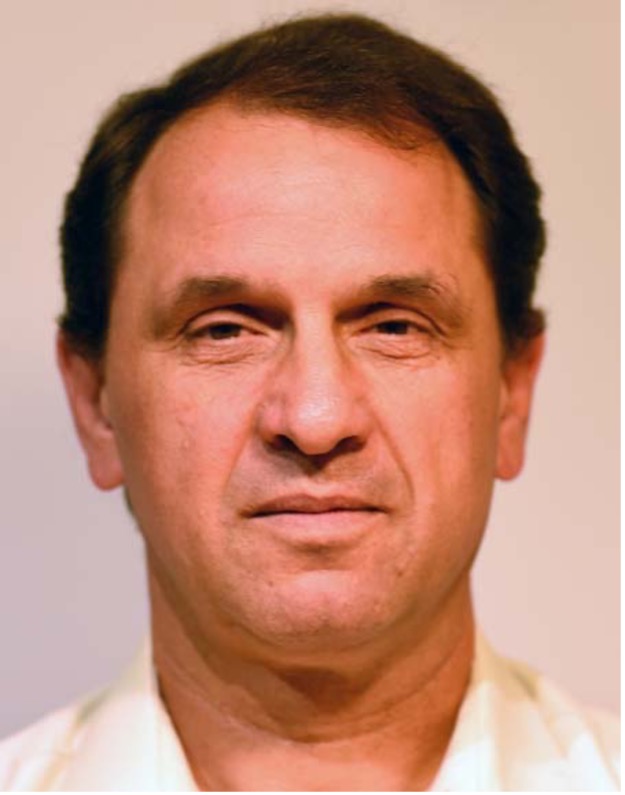 Ivan Seskar is the Chief Technologist and Director/IT at WINLAB, Rutgers University responsible for experimental systems and prototyping projects. He is currently the program director for the COSMOS project responsible for the New York City NSF PAWR deployment. He has also been the co-PI and project manager for all three phases of the NSF-supported ORBIT mid-scale testbed project at WINLAB, successfully leading technology development and operations since the testbed was released as a community resource in 2005 and for which the team received the 2008 NSF Alexander Schwarzkopf Prize for Technological Innovation. Ivan is a co-chair of the IEEE Future Networks Testbed Working Group, member of the IEEE Standardization Programs Development Board and the co-founder and CTO of Upside Wireless Inc.
Ivan Seskar is the Chief Technologist and Director/IT at WINLAB, Rutgers University responsible for experimental systems and prototyping projects. He is currently the program director for the COSMOS project responsible for the New York City NSF PAWR deployment. He has also been the co-PI and project manager for all three phases of the NSF-supported ORBIT mid-scale testbed project at WINLAB, successfully leading technology development and operations since the testbed was released as a community resource in 2005 and for which the team received the 2008 NSF Alexander Schwarzkopf Prize for Technological Innovation. Ivan is a co-chair of the IEEE Future Networks Testbed Working Group, member of the IEEE Standardization Programs Development Board and the co-founder and CTO of Upside Wireless Inc.
Panel 2
Enabling the Green Wave: Sustainable Strategies for 6G Wireless Networks
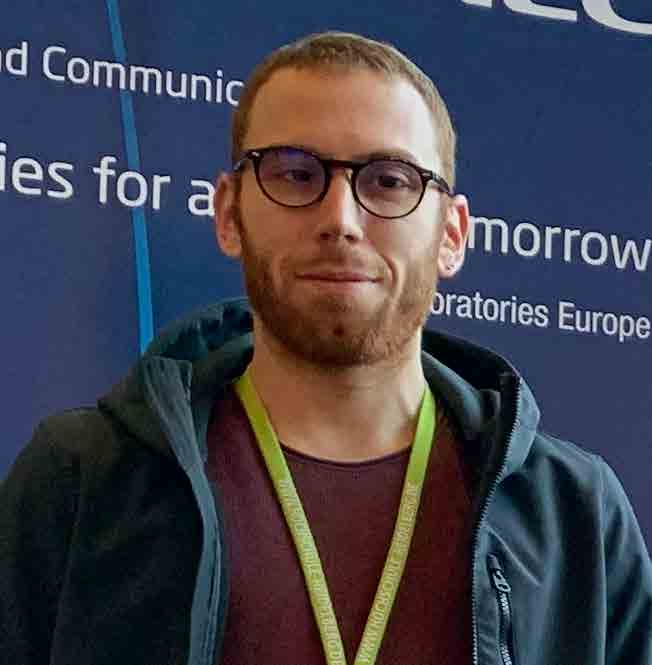 Dr. Vincenzo Sciancalepore
Vincenzo Sciancalepore is a Principal Researcher and RAN specialist at NEC Laboratories Europe GmbH, Germany. He received his M.Sc. degree in Telecommunications Engineering and Telematics Engineering in 2011 and 2012, respectively, whereas in 2015, he received a double Ph.D. degree from Politecnico di Milano and Universidad Carlos III de Madrid.
He has been spending several years in the area of network virtualization and network slicing challenges with an extended vision on mobile edge computing research topic. He is currently focusing on the novel and emerging topic of Reconfigurable Intelligent Surfaces (RIS) tackling technical challenges from both theoretic and implementation perspectives. He is the standard delegate of NEC actively contributing to the standard ETSI RIS ISG. He is currently involved in the IEEE Emerging Technologies Initiative (ETI) leading the initiatives on Reconfigurable Intelligent Surfaces (RIS). He is also appointed as associate editor of IEEE Vehicular IEEE Vehicular Technology Magazine and editor of IEEE Transactions on Wireless Communications. Currently, he is actively leading as technical project manager a European-funded project, namely RISE-6G that analyzes the groundbreaking technology of smart surfaces. He will be appointed as innovation project manager in the 6G-GOALS project.
Dr. Vincenzo Sciancalepore
Vincenzo Sciancalepore is a Principal Researcher and RAN specialist at NEC Laboratories Europe GmbH, Germany. He received his M.Sc. degree in Telecommunications Engineering and Telematics Engineering in 2011 and 2012, respectively, whereas in 2015, he received a double Ph.D. degree from Politecnico di Milano and Universidad Carlos III de Madrid.
He has been spending several years in the area of network virtualization and network slicing challenges with an extended vision on mobile edge computing research topic. He is currently focusing on the novel and emerging topic of Reconfigurable Intelligent Surfaces (RIS) tackling technical challenges from both theoretic and implementation perspectives. He is the standard delegate of NEC actively contributing to the standard ETSI RIS ISG. He is currently involved in the IEEE Emerging Technologies Initiative (ETI) leading the initiatives on Reconfigurable Intelligent Surfaces (RIS). He is also appointed as associate editor of IEEE Vehicular IEEE Vehicular Technology Magazine and editor of IEEE Transactions on Wireless Communications. Currently, he is actively leading as technical project manager a European-funded project, namely RISE-6G that analyzes the groundbreaking technology of smart surfaces. He will be appointed as innovation project manager in the 6G-GOALS project.
Panelists
 Dr. Emilio Calvanese Strinati obtained his Engineering Master degree in 2001 from the University of Rome ‘La Sapienza’ and his Ph.D in Engineering Science in 2005 from Paris Telecom. He then started working at Motorola Labs in Paris in 2002. Then in 2006 he joint CEA LETI as a research engineer. From 2007, he becomes a PhD supervisor. From 2010 to 2012, he has been the co-chair of the wireless working group in GreenTouch Initiative, which deals with design of future energy efficient communication networks. From 2011 to 2016 he was the Smart Devices & Telecommunications strategic programs Director, then, until January 2020 he was the Smart Devices & Telecommunications Scientific and Innovation Director. Since February 2020 he is the Nanotechnologies and Wireless for 6G (New-6G) Program Director focusing on future 6G technologies. He has published around 200 papers in journals, international conferences, and books chapters, and he has given more than 200 international invited talks, keynotes and tutorials. He is the main inventor of more than 80 patents. His current research interests are on Reconfigurable Intelligent Surfaces, Semantic communications, Goal-oriented communications AI-native technologies in the contest of 6G.
Dr. Emilio Calvanese Strinati obtained his Engineering Master degree in 2001 from the University of Rome ‘La Sapienza’ and his Ph.D in Engineering Science in 2005 from Paris Telecom. He then started working at Motorola Labs in Paris in 2002. Then in 2006 he joint CEA LETI as a research engineer. From 2007, he becomes a PhD supervisor. From 2010 to 2012, he has been the co-chair of the wireless working group in GreenTouch Initiative, which deals with design of future energy efficient communication networks. From 2011 to 2016 he was the Smart Devices & Telecommunications strategic programs Director, then, until January 2020 he was the Smart Devices & Telecommunications Scientific and Innovation Director. Since February 2020 he is the Nanotechnologies and Wireless for 6G (New-6G) Program Director focusing on future 6G technologies. He has published around 200 papers in journals, international conferences, and books chapters, and he has given more than 200 international invited talks, keynotes and tutorials. He is the main inventor of more than 80 patents. His current research interests are on Reconfigurable Intelligent Surfaces, Semantic communications, Goal-oriented communications AI-native technologies in the contest of 6G.
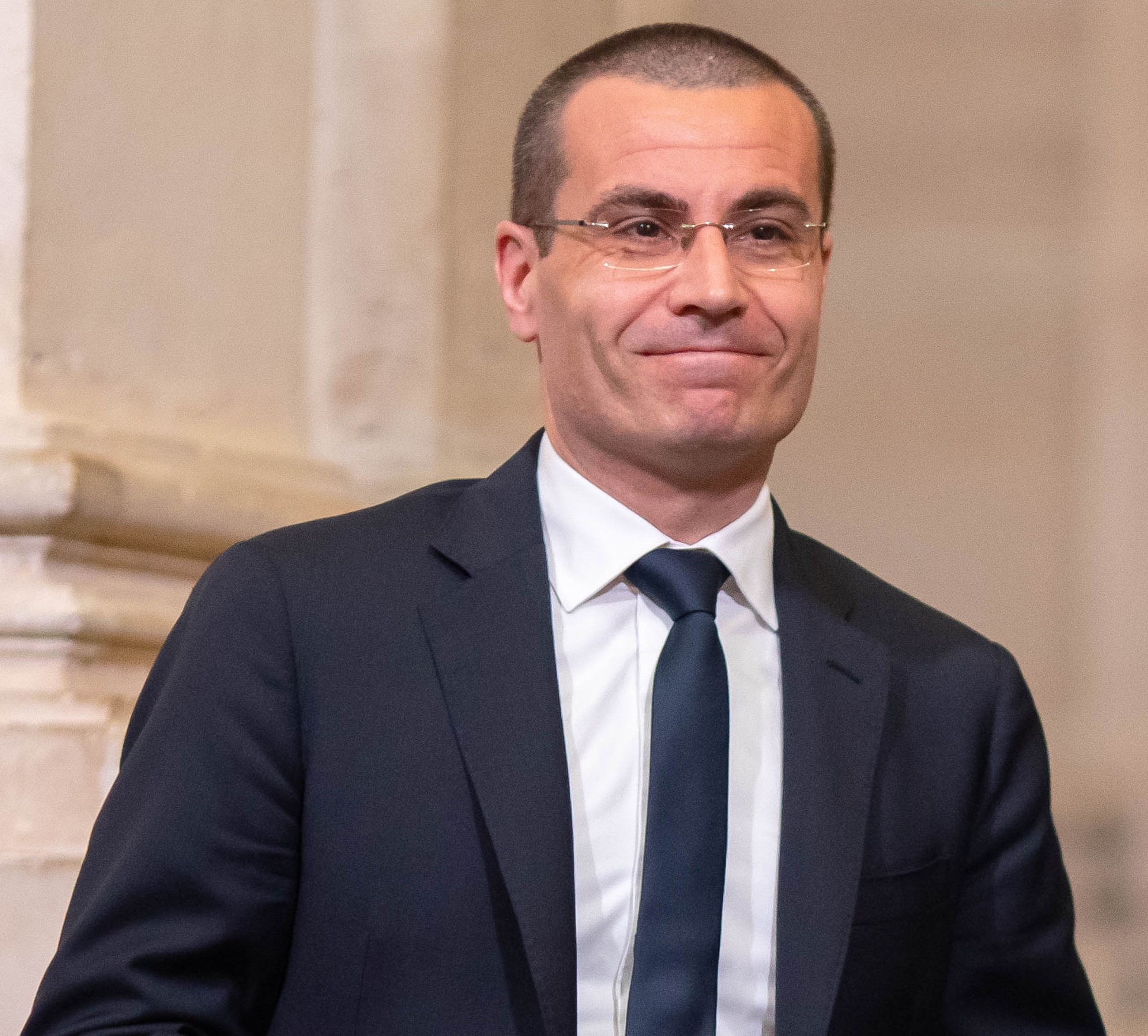 Marco Di Renzo received the Laurea (cum laude) and Ph.D. degrees in electrical engineering from the University of L’Aquila, Italy, in 2003 and 2007, respectively, and the Habilitation à Diriger des Recherches (Doctor of Science) degree from University Paris-Sud (currently Paris-Saclay University), France, in 2013. Currently, he is a CNRS Research Director (Professor) and the Head of the Intelligent Physical Communications group in the Laboratory of Signals and Systems (L2S) at Paris-Saclay University – CNRS and CentraleSupelec, Paris, France. Also, he is an elected member of the L2S Board Council and a member of the L2S Management Committee, and is a Member of the Admission and Evaluation Committee of the Ph.D. School on Information and Communication Technologies, Paris-Saclay University.
Marco Di Renzo received the Laurea (cum laude) and Ph.D. degrees in electrical engineering from the University of L’Aquila, Italy, in 2003 and 2007, respectively, and the Habilitation à Diriger des Recherches (Doctor of Science) degree from University Paris-Sud (currently Paris-Saclay University), France, in 2013. Currently, he is a CNRS Research Director (Professor) and the Head of the Intelligent Physical Communications group in the Laboratory of Signals and Systems (L2S) at Paris-Saclay University – CNRS and CentraleSupelec, Paris, France. Also, he is an elected member of the L2S Board Council and a member of the L2S Management Committee, and is a Member of the Admission and Evaluation Committee of the Ph.D. School on Information and Communication Technologies, Paris-Saclay University.
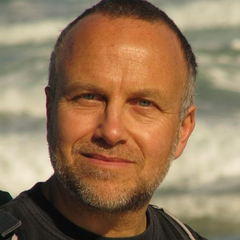 Renato Lo Cigno graduated from Politecnico di Torino in 1988. Before joining the University of Brescia he worked in Politecnico di Torino and University of Trento. In Brescia he coordinates the Advanced Networking Systems laboratory together with colleague Francesco Gringoli, and he is member of the Department Doctoral School. During his career he spent sabbatical periods in UCLA and NEC Research Center in Heidelberg, DE. He has coordinated the RIA interdisciplinary CAPS project netCommons (http://netcommons.eu) dedicated to investigate the phenomenon of Community Networks interpreted as a commons of the peoples' communication fundamental right, contributing to changes in the European Communications Regulations and the UN Declaration of People's Rights. He actively participated in many EU-funded projects as well as National Strategic Projects (PRIN); he currently coordinates the PRIN CSI-FUTURE devoted to explore Joint Communication and Sensing for future 6G networks. Prof. Lo Cigno is co-author of more than 200 peer-reviewed scientific papers, and is senior member of IEEE and ACM and Editor in International Journals.
Renato Lo Cigno graduated from Politecnico di Torino in 1988. Before joining the University of Brescia he worked in Politecnico di Torino and University of Trento. In Brescia he coordinates the Advanced Networking Systems laboratory together with colleague Francesco Gringoli, and he is member of the Department Doctoral School. During his career he spent sabbatical periods in UCLA and NEC Research Center in Heidelberg, DE. He has coordinated the RIA interdisciplinary CAPS project netCommons (http://netcommons.eu) dedicated to investigate the phenomenon of Community Networks interpreted as a commons of the peoples' communication fundamental right, contributing to changes in the European Communications Regulations and the UN Declaration of People's Rights. He actively participated in many EU-funded projects as well as National Strategic Projects (PRIN); he currently coordinates the PRIN CSI-FUTURE devoted to explore Joint Communication and Sensing for future 6G networks. Prof. Lo Cigno is co-author of more than 200 peer-reviewed scientific papers, and is senior member of IEEE and ACM and Editor in International Journals.
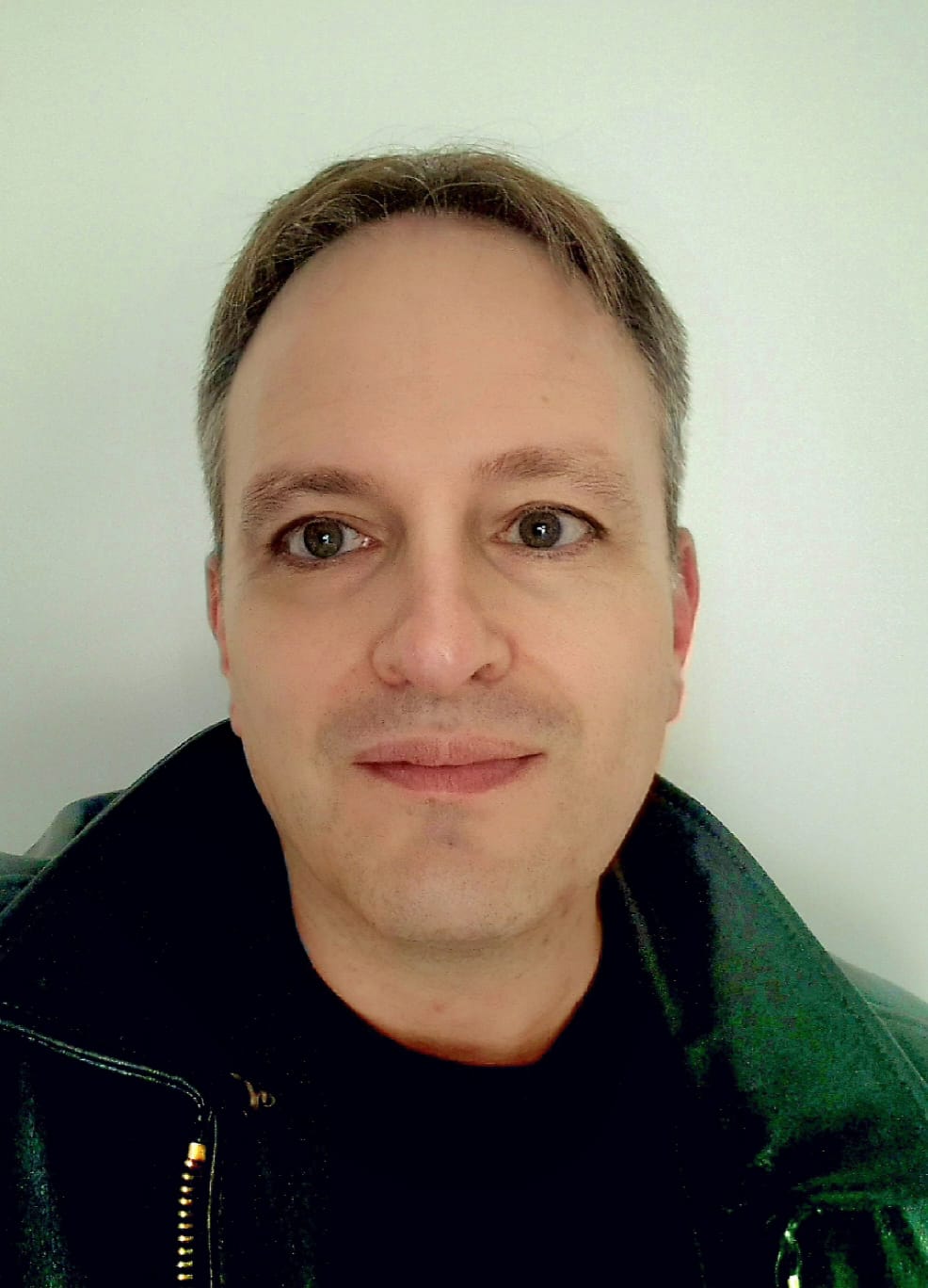 Gianpiero Negri received the MSc degree summa cum laude in Computer Science – Electronic Engineering from Salerno University, a post MSc degree in Industrial Research, Mechatronics and Automation from CNR-ITIA (Italian National Research Council - Institute of Industrial Technologies and Automation, 2005). He also holds a Ph.D. in Applied Mathematics (dissertation title “A Game Theoretical Approach to Safe Decision-Making System Development for Autonomous Machines”). He’s currently Principal Manager - WW Robotics Safety Engineering at Amazon Global Robotics (Mechatronics and Sustainable Packaging Customer eXperience), leading the worldwide CX Robotics safety and compliance team and managing safety systems innovation, research, development, implementation and certification for mechatronics/robotics system, safe artificial intelligence systems, safe integration of technologies in automated research and testing Lab environment. Since 2007 he has been technical leader and scientific responsible of several R&D programs in the field of advanced mechatronics, robotics and industrial automation. Since 2017 he’s a member of ISO technical committees and working groups focused on development of autonomous machine safety and functional safety standards: ISO/IEC JTC 1/SC42 – Artificial Intelligence, ISO TC 299/WG3 focused on industrial robotics safety/integrated robotic systems, etc. Since 2018 he’s an IEEE Computer Society – IEEE Software reviewer. His current research interests include mechatronics, functional safety, automotive control systems, sensors, system engineering, robotics, electronic control system of advanced machines, scientific dissemination and artificial intelligence. He is author of several scientific and dissemination papers in the field of mechatronics, robotics and artificial intelligence, and he holds several patents in mechatronics and automotive related fields.
Gianpiero Negri received the MSc degree summa cum laude in Computer Science – Electronic Engineering from Salerno University, a post MSc degree in Industrial Research, Mechatronics and Automation from CNR-ITIA (Italian National Research Council - Institute of Industrial Technologies and Automation, 2005). He also holds a Ph.D. in Applied Mathematics (dissertation title “A Game Theoretical Approach to Safe Decision-Making System Development for Autonomous Machines”). He’s currently Principal Manager - WW Robotics Safety Engineering at Amazon Global Robotics (Mechatronics and Sustainable Packaging Customer eXperience), leading the worldwide CX Robotics safety and compliance team and managing safety systems innovation, research, development, implementation and certification for mechatronics/robotics system, safe artificial intelligence systems, safe integration of technologies in automated research and testing Lab environment. Since 2007 he has been technical leader and scientific responsible of several R&D programs in the field of advanced mechatronics, robotics and industrial automation. Since 2017 he’s a member of ISO technical committees and working groups focused on development of autonomous machine safety and functional safety standards: ISO/IEC JTC 1/SC42 – Artificial Intelligence, ISO TC 299/WG3 focused on industrial robotics safety/integrated robotic systems, etc. Since 2018 he’s an IEEE Computer Society – IEEE Software reviewer. His current research interests include mechatronics, functional safety, automotive control systems, sensors, system engineering, robotics, electronic control system of advanced machines, scientific dissemination and artificial intelligence. He is author of several scientific and dissemination papers in the field of mechatronics, robotics and artificial intelligence, and he holds several patents in mechatronics and automotive related fields.